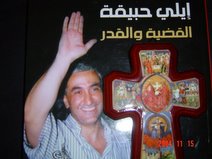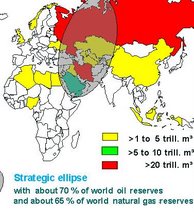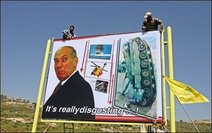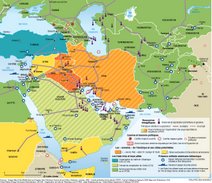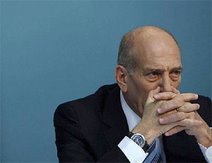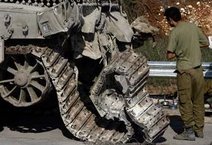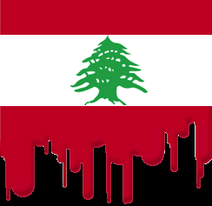


The incendiary mix of politics and religion against the backdrop of legitimate political and socioeconomic grievances in the Muslim world not only poses a threat today, but also casts a shadow over many tomorrows – as the hopes of radicalized youth are dashed against the rocks of western hegemony and domestic upheaval.
Religious identities are increasingly shaping responses to world events. The 11 September attacks on the US, the 2004 Madrid train bombings and those in London in 2005, not to mention the outcry over the 2005 publication of cartoons satirizing the Prophet Mohammad in a Danish newspaper all appear to confirm a resurgence of religious fervor and its collision with global politics.
Too often, such events are explained in simplistic 'us versus them' syntax, exposing an alleged sociocultural incompatibility between the West and the Muslim world. However, this 'clash of civilizations' thesis proves too limiting.
When we look more closely, we can see that the growing assertion of religious identities in the Muslim world is linked to tangible political and socioeconomic concerns. Grievances held by members of Muslim communities are often expressed as calls for greater justice. They reflect a deep dissatisfaction with both the domestic and international status-quo. Perceptions of unfair treatment, unequal power relations and an absence of effective political mechanisms through which to address ongoing concerns all feed this sense of injustice and frustration.
The combustible mix of politics and religion in the face of legitimate grievances not only poses a threat today, but also casts a shadow over tomorrow as the expectations among young people in the Muslim world are not met and frustrations are allowed to build with no outlet. Indeed, it is this political-religious nexus on which extremists are able to capitalize.
Pakistan's problem
Potential for youth radicalization is dangerously high in Pakistan, for example. This is a source of concern not only in Pakistan, but also for volatile, neighboring Afghanistan. Pakistan's northwest frontier with Afghanistan has been the training ground for militants heading to fight in Afghanistan, as well as a refuge for the Taliban.
A number of factors are responsible for youth radicalization in Pakistan. The state is failing young people from poor backgrounds. Access to public education in the country depends upon people's socioeconomic background, leaving many a young Pakistani feeling socially marginalized and politically alienated. This is particularly the case in the tribal areas, where communities are bearing the brunt of the government's recent military operations.
Where the state is failing, Islamic social and religious networks offer an alternative. Madrassahs provide education for young people from poor families, filling the vacuum left by the state. This only becomes a problem when they propagate extremist sentiments among youth in search of guidance and greater justice. The choice of extremism offers not just opportunities, but also a sense of purpose, pride and prestige – a mixture particularly appealing to idealistic young people.
Yet, radicalization of the young is not only connected to poverty and under- or unemployment. A sense of injustice is also connected to broader political and religious concerns. Pakistan's youth, and those in the Muslim world in general, are growing up against the backdrop of US hegemony and tremendous social upheaval at home. The appeal of extremism is in part nourished by opposition to US-NATO military involvement in Afghanistan. The fact that their own government supports the military intervention is even more anathema, given the widespread belief in Pakistan - and in the greater Arab-Islamic world -that US policies are antagonistic toward the Muslim world. The government in Islamabad, therefore, not only appears to be doing Washington's bidding, but to add insult to injury, it is supporting policies that are seen as hostile toward the Muslim world.
The US and the West have also tended to conflate conservatism with extremism, adding fuel to the Muslim world's anti-western fire. The West's promotion of political liberalism is often associated with secularism. This understandably meets with considerable opposition in a society that is deeply conservative in religious terms. The majority of people do not want secularism and will vehemently oppose any efforts at secularization. It is important to understand that Islam is part of the totality of people's lives and identities. Failure to distinguish between conservative Muslims and extremists and to see secularism as the solution to extremism is only likely to play into the hands of radicals and generate even more visceral anti-western sentiments.
As in Pakistan, youth radicalization elsewhere in the Arab-Islamic world has its roots in concrete issues that require appropriate responses. Radical Islamic groups have tended to grow swiftly in areas where people feel alienated from national elites, who appear to care little for their needs and lend support to foreign powers that are perceived as having an anti-Islamic agenda, often implemented through military means. Recognizing this is vital to understanding the assertion of Muslim identities in global politics and to reducing violent extremism.













